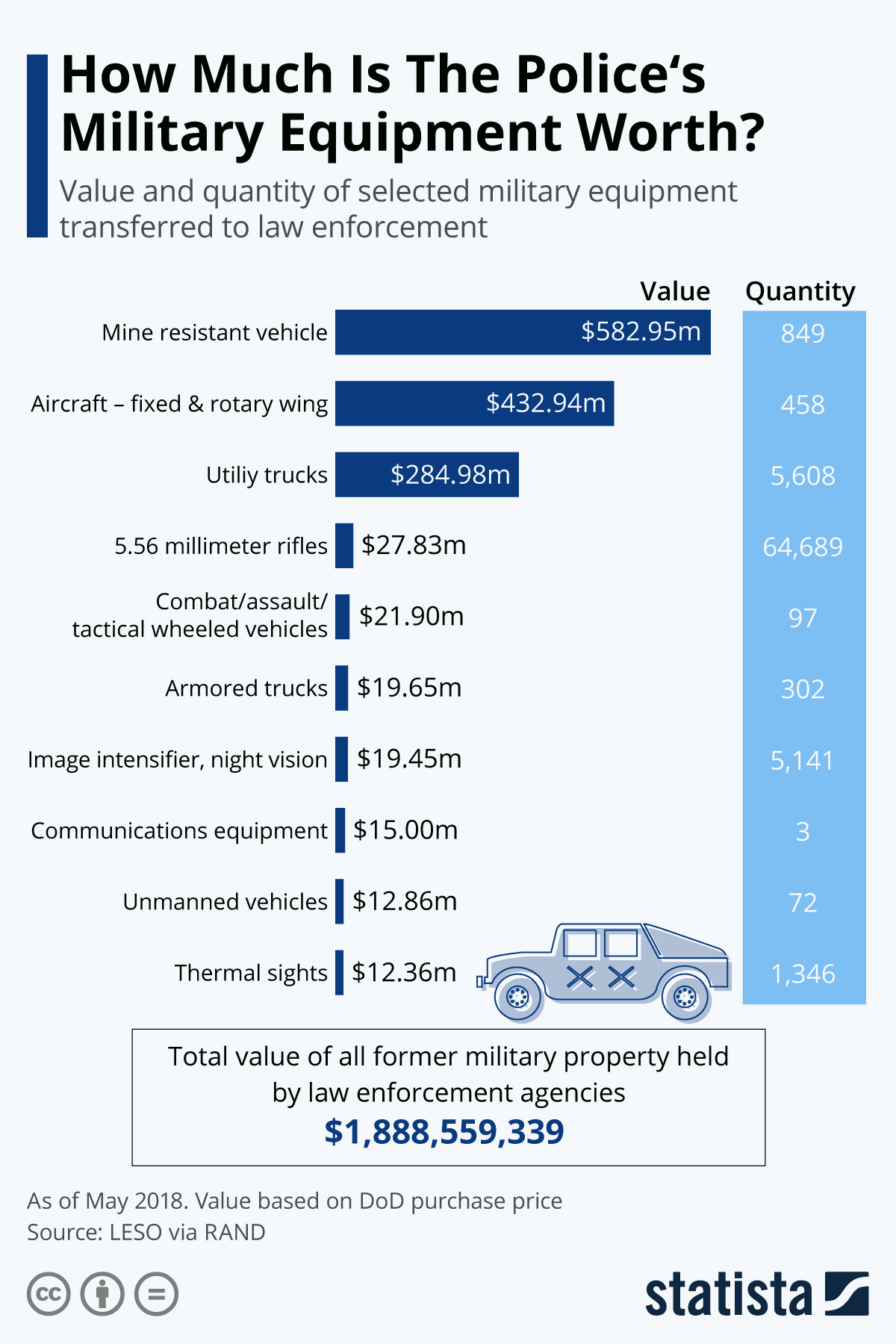In the wake of George Floyd's death, police brutality and budgets in the U.S. have come into sharp focus. The issue of police militarization has also come back under the spotlight amid the protests that have rocked the nation over the past fortnight. It was also heavily discussed in the wake of Ferguson when mine-resistant vehicles and heavily armed officers appeared on the streets. That prompted President Obama to reduce the militarization of U.S. law enforcement by signing Executive Order 13688 in May 2015 which limited and prohibited certain types of equipment. In August 2017, President Trump rolled back that Executive Order, allowing police departments to once again obtain military items without any restrictions
Approximately $6 billion of excess Department of Defense property was transferred to U.S. law enforcement agencies between 1990 and 2017. Under the 1033 Program, all sorts of items from laptops to assault rifles have been passed from the military to the police. These fall into two categories - controlled items (like drones or helicopters) and uncontrolled items (like office furniture and tools). A 2018 RAND analysis of the situation found that in fiscal years 2015 to 2017, the value of uncontrolled transfers came to $1.2 billion while controlled items had a value of $775 million.
RAND found that the value of all excess Department of Defense items held by law enforcement agencies across the U.S. in 2018 stood at $1,888,559,339. The following infographic takes a closer look at a selection of equipment from the RAND report and how much it was worth at the time of the analysis. There were 849 mine-resistant vehicles in operation at U.S. police departments and they had a value of just under $583 million. Elsewhere on the list, 64,689 5.56 millimeter rifles were transferred to law enforcement and they were worth $27.83 million while the grand total for all aircraft in the program came to around $433 million.





















